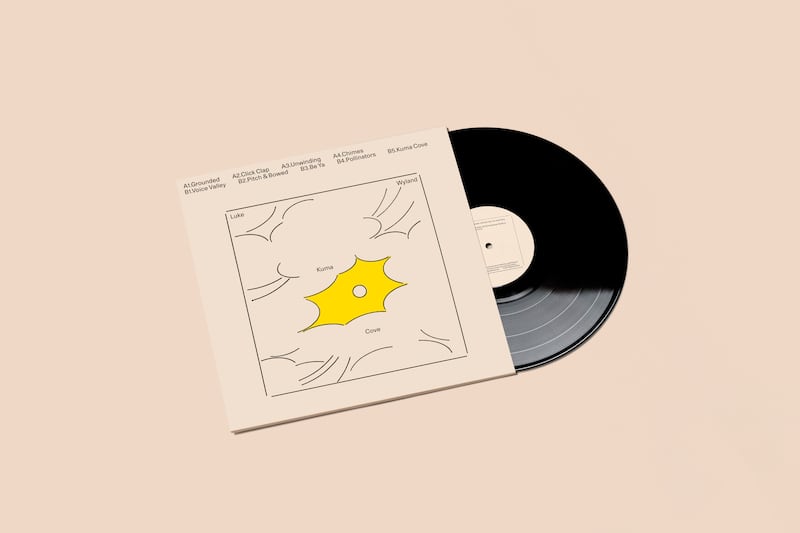You won’t find Kuma Cove on any maps. If it has a name besides the one Luke Wyland has bestowed upon it, after the Japanese word for “bear” in honor of a prominent ursine rock formation in the water, he isn’t telling—nor will he disclose its location. This divet on the Oregon Coast is the namesake and inspiration for the Portland musician’s new solo album, which comes out Nov. 1 on Balmat.
“The Oregon Coast can be very overwhelming and windy, and this cove is very much a space to rest in,” says Wyland, who often goes to the cove with his wife. “It’s a space I’ll probably keep returning to for the rest of my life.”
Wyland has been active in the Portland experimental music universe for over two decades, first coming to prominence with his project AU, which released four albums of prismatic psych folk between 2007 and 2012. Methods Body, his duo with fellow Portland musician John Niekrasz, was recognized as one of Willamette Week’s Best New Bands in 2020. He’s released solo work as LWW before, but Kuma Cove is his first release under his own name.
Wyland created the nine tracks on Kuma Cove with short loops, which he used as the basis for live, one-take improvisations. Wyland composed this music with a setup he’s been working on for nearly 15 years, centered on the audio program Ableton, which he credits with allowing him to “sculpt and manipulate time” in his music.
“I’m trying to mirror some of the rhythms and patterns that I’ve seen out in nature,” Wyland says. “They’re all in a relationship with each other. It’s kind of like an ecosystem that’s existing within this larger space, and you can hear and see the connections.”
Though loop-based composition often requires the composer to lock into an unchanging grid that limits improvisation, Wyland worked with varying tempos to free himself from the tyranny of the metronome, allowing for a more fluid and less rigid sound than if he’d stuck to a steady rhythm. “Things are shifting and phasing in ways that show surprising frictions,” Wyland says.
The result is something clearly electronic yet at the same time rugged, pastoral, polished in the same way as a surf-tossed stone. Fans of ambient techno artists like GAS and The Soft Pink Truth will find plenty of love here; small wonder it was released on Balmat, co-founded by former Portland resident Philip Sherburne, a music journalist who’s championed ambient, electronic and experimental music for more than 20 years.
Wyland recorded the album at his studio in Corbett at the mouth of the Columbia River Gorge, on a close friend’s 22-acre property situated above the Sandy River. Wyland lived there for a time during the thick of the pandemic, and it served as a home, studio and place where he could commune with friends in the safety of the outdoors.

“That space is really imbued in the music,” Wyland says. “It’s the first time I’ve ever had a creative space where I can just make music freely without worrying about neighbors or roommates. I’ve lived in Portland for 22 years, and I’ve been making records in basements and garages and bedrooms and whatnot, so that kind of slowed me down.”
Though Kuma Cove is wordless, featuring vocals only in sampled snippets, it’s so openhearted and sincere it’s not hard to read as a deeply personal work even without knowing the context behind these sweeping and sighing songs. Wyland credits his newfound embrace of the natural world with allowing him to be more vulnerable in his music, down to the use of his real name for the first time on a solo release.
“It feels a little bit more personal to use my name,” he says. “In a way, it feels like a restart of sorts.”